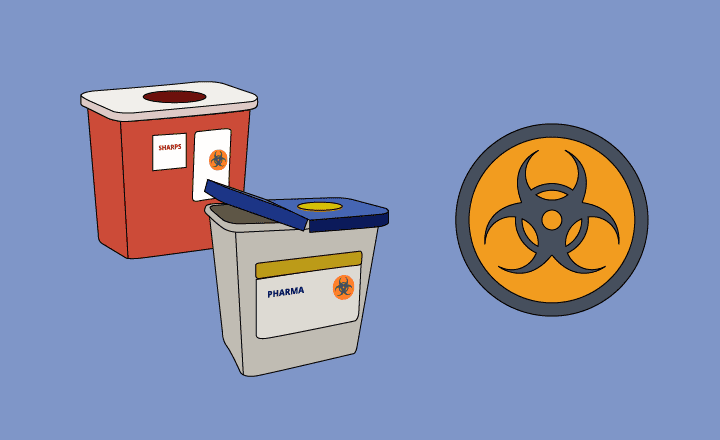
Introduction: The Importance of Proper Medication Disposal
Properly disposing of expired medications is crucial for both environmental and public health reasons. In this article, we will delve into the essential guidelines for safely getting rid of expired medications and explore why it’s a responsible practice for everyone.
Understanding the Risks of Improper Disposal
When medications expire, their chemical composition can change, leading to potential risks if consumed. Improper disposal, such as flushing them down the toilet or throwing them in the trash, can introduce these chemicals into the water supply or soil, impacting the environment and potentially harming wildlife. Additionally, leftover medications in the home pose a risk of accidental ingestion, especially for children or pets.
Guidelines for Safe Medication Disposal at Home
To ensure safe disposal, start by checking the medication label for any specific disposal instructions. If there are none, follow these general guidelines: Mix the medication with an undesirable substance, like coffee grounds or kitty litter, and place it in a sealed bag or container before throwing it in the trash. Remove personal information from prescription labels before disposing of packaging.
Community Take-Back Programs: A Convenient Option
Many communities offer take-back programs, allowing residents to drop off expired medications at designated locations for safe disposal. These programs are often organized by local pharmacies, law enforcement agencies, or environmental departments. Utilizing these programs not only ensures proper disposal but also prevents medications from ending up in the wrong hands.
Flushing Medications: When It’s Appropriate
While flushing medications down the toilet is generally discouraged, there are specific instances where it might be the recommended method. Some medications, especially certain opioids and controlled substances, come with disposal instructions advising flushing to prevent misuse. Always check the label or consult with a pharmacist to determine if flushing is appropriate for a particular medication.
Environmental Impact and Water Safety Concerns
Flushing medications can raise concerns about the environmental impact on water quality. Pharmaceuticals in water systems can affect aquatic life and, in some cases, find their way back into the human water supply. It’s crucial to strike a balance between following disposal instructions and being mindful of potential environmental consequences. Choosing alternative disposal methods whenever possible is a responsible approach.
Educating Yourself on Medication Disposal Regulations
Regulations regarding medication disposal can vary by location, so it’s essential to stay informed about local guidelines. Some areas may have specific regulations prohibiting certain disposal methods, emphasizing the importance of checking with local authorities or healthcare providers for up-to-date information on proper medication disposal practices.
The Role of Pharmacists: Valuable Resources for Guidance
Pharmacists play a pivotal role in educating the public on proper medication disposal. They can provide valuable guidance on suitable disposal methods for specific medications and inform individuals about take-back programs in the community. Don’t hesitate to consult with your pharmacist if you have any questions or concerns about disposing of expired medications.
Encouraging a Culture of Responsible Medication Disposal
Promoting a culture of responsible medication disposal involves raising awareness in the community. Healthcare professionals, community organizations, and local authorities can work together to educate the public about the potential risks of improper disposal and the available resources for safe methods. Encouraging responsible habits at home contributes to a healthier and safer environment for everyone.
Conclusion: Taking Responsibility for Safe Medication Disposal
Properly disposing of expired medications is a responsibility that extends beyond personal health. It contributes to environmental sustainability and community safety. By following guidelines, utilizing take-back programs, and staying informed about local regulations, individuals can play a vital role in ensuring the safe and responsible disposal of medications. For more information on this topic, visit thietbidinhvithongminh.com.
